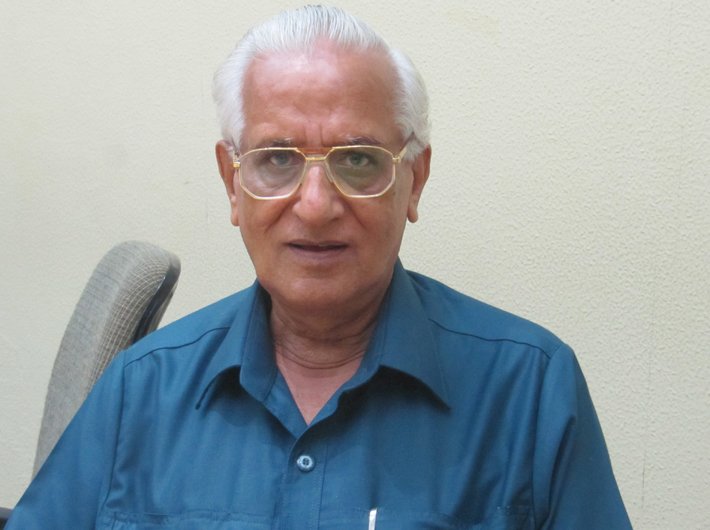The target group at that time were only rich people who were holding unaccounted money
“I was branch manager at the SBI branch in Meerut. Rs 1,000 was a very big amount those days and Rs 500 denomination currency did not exist. The target group at that time were only rich people who were holding unaccounted money and common man was not affected at all and welcomed it,” said a retired banker while referring to the 1978 demonetisation.
Speaking from Hastinapur, a town near Meerut in Uttar Pradesh, SK Nangia said that after demonetisation announcement he visited a bank branch out of curiosity to see the prevailing situation. He said that a huge crowd of mostly farmers had gathered in the small branch, but the new currency had not arrived.
There were arguments taking place between agitated people and bank officials who were trying to pacify them.
The sudden announcement brought inconvenience to the 76-year-old who was only carrying Rs 500 notes. “After attending the Central Information Commission conference in Delhi, I was to travel by road to Hastinapur, 100 km away. I had to beg someone to give me Rs 200,” said the former banker, who is now a Mumbai resident and RTI activist.
He stressed that there is a difference between what happened now and what took place in 1978.
He said that nowadays carrying Rs500 and Rs1000 notes is common with people. Even at the ATMs, very few notes dispensed are of 100 denomination and majority of the notes are of Rs500- Rs1000 denomination.
Nangia drew a salary of Rs.1200 those days and has been an income tax payer since. “We would only have 100 denomination notes with us and the ban (in 1978) did not affect common man at all.”
On whether the government was successful in weeding out black money after the ban in 1978 ban, he said, “The purpose may not have been completely realised at that time and can only be realised if the (high denomination) currency is completely stopped.”
“It was only the rich who had plenty of money and against whom the step was aimed at that time. There were no PAN cards or Aadhaar cards that time. Many people deposited the currency and there were many others who did not deposit money. Those who did not deposit currency could never be detected and no one came to know” he said.
On the current ban, Nangia who retired as deputy general manager, SBI in 2001, feels that in principle the approach and surprise element in action taken is good for tackling unaccounted money, but the lack of preparatory arrangements are causing problems to the common man.
Nangia observed that bank branches were not adequately equipped. Also, at the end of the day after the banks finish their transactions, they keep money in the strong room. Now with all currency flowing into the banks, they will not only have space to store the currency.
“The branch manager in fact was telling me that there is no place to store the currency and they will have to keep it outside on the table which again can be a serious problem. The rural and semi urban areas where there are no banks have to face huge problems,” he said.
He also observed: “There is no business happening in the market and currency of Rs 100 notes is not available. Banks are now circulating old and soiled Rs 100 notes. Post offices do not have enough cash and there are very limited transactions there.”
The retired banker said that with the procurement season of Kharif crops starting soon, there is requirement for adequate cash currency and in its absence, people are very agitated. “Most currency for distribution is for procurement of crops. For example, if the mill owner is not able to take money from bank and pay the farmer for buying sugarcane for crushing, the situation may turn into dangerous law and order problem.”
On how the ban will affect professionals like lawyers, chartered accountants, doctors, he said these people collect their fees but do not report their income. Now they are liable to be charged for under reporting of income if they deposit amount in excess of Rs 250,000.

